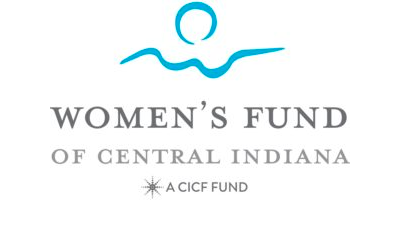As we rush headfirst into the holiday season, the Women’s Fund team has been reflecting on Feast Table of Our Future, the spoken-word poem Women’s Fund commissioned from Manon Voice to demonstrate the resiliency of women in our community. The Feast Table of Our Future is the inspiration behind the our December blog series. We chose to highlight several grantees and talk with them about our collective table.
This year has been hard. For many women and girls in our community, their Feast Table may not only be missing the people they love but may also be missing a nutritious meal. Maybe they don’t even have a table or a safe, affordable place to call home. It’s impossible to hear Manon Voice and not be filled with wonder at the resiliency of the women in our community.
Here’s what we know about the resiliency of La Plaza, Central Indiana’s premiere Latino organization, and their thoughts about our table.
La Plaza closed its doors when the pandemic first hit back in March. Like so many organizations, they pivoted to provide services and programs virtually. Over the last several months, La Plaza has found innovative ways to fulfill the needs of the Latina community through creative community partnerships.
· They added food distribution to families in need thanks to Gleaners.
· They created a partnership with Indy Rent has given them the opportunity to provide funds for housing and utilities.
· A partnership with Reach for Youth created opportunities to provide mental health services.
· A partnership with Community Health has allowed La Plaza to provide flu shots and medical care to the community.
· And a long-standing partnership with Women’s Fund provided La Plaza with an emergency grant to provide women and girls with emergency hygiene kits.
The team at La Plaza, led by President & CEO Miriam Acevedo Davis, has remained steadfast through the challenges of 2020. According to Miriam, they have found strength in each other and are encouraged by community and corporate support. “The kindness, thoughtfulness, and generosity of others, coupled with seeing families coming together during this turbulent time, gives me great hope.”
Women’s Fund values its long-time partnership with La Plaza and asked Miriam what it means to be together at our community table.
Q. In your opinion, what does the Women’s Fund table look like?
A. The Women’s Fund table is a very welcoming table. It’s a table where everyone has a seat, and no one is left out, particularly our most vulnerable neighbors. It’s also a very nurturing table where you know you’ll be seated next to someone who cares.
Q. What does the La Plaza table look like?
A. Honestly, our table is filled with individuals who are exhausted and overwhelmed, yet hopeful. In our current environment, we are working extra hard to make sure people at our table have enough. We are overwhelmed, but sufficient and able.
Q. What does it mean to be a valued member of the Women’s Fund table?
A. It means being part of a network of people who care. It means being valued when most often the people we serve are overlooked. It means being heard and understood.
Q. How can La Plaza play a role in supporting more women and girls at the community table?
A. By being intentional in the work we do and continuing to focus on the needs of women and girls in our community. We will not only invite people from our community to the table, but we will highlight their stories and celebrate their successes. We will also continue to add critical services to help those women and girls in need, such as our domestic violence programming and services for victims of domestic violence and mental health services for those who need care. Finally, we will continue our advocacy work so that women and girls in the Latina community are being heard, and they know that their voices are valued.
Read this blog post to learn how La Plaza responded to the pandemic and leveraged emergency funds granted by Women’s Fund.
Women’s Fund is committed to creating a true “feast table for our future.” We invite you to join us at our table and help make a difference in the lives of women and girls in central Indiana.
